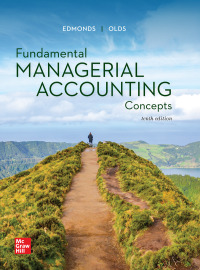Answered step by step
Verified Expert Solution
Question
1 Approved Answer
Overview The following events occurred in June: June 1 : Owner contributed $ 5 0 , 0 0 0 in cash to the business. June
Overview The following events occurred in June:
June : Owner contributed $ in cash to the business.
June : Owner purchased a company vehicle in the amount of $
June : Owner took out a small business loan in the amount of $
June : Owner paid rent for June, and prepaid office rent for a month period to cover July
through December at $ per month.
June : Owner paid business license fees in the amount of $ to the county.
June : Owner ordered office supplies, on account, in the amount of $
June : Owner performed service for client on account in the amount of $
June : Owner provided service for client in the amount of $ Customer paid $ at
time of service. Client will be billed for the balance due.
June : Owner paid $ in advertising costs to the local paper.
June : Owner recorded wages due to the parttime employee in the amount of $ This
will be paid on June
June : Owner prepaid business insurance to cover July through December at the rate of
$ per month.
June : Owner paid wages due to parttime employee from period ending June
June : Owner paid for plumbing repairs in the office in the amount of $
June : Owner withdrew $ cash for personal use.
June : Customer paid balance due from June service in the amount of $
June : Owner provided service to client in the amount of $ Client paid at time of
service.
June : Owner paid balance due for office supplies purchase on June
June : Owner performed service for client on account in the amount of $
June : Owner received telephone bill for month of June in the amount of $ and
recorded the expense. This bill will not be paid until July.
June : Last day of pay period; owner owes parttime worker $ for the June through
June pay period. This will be paid on July
June : Record depreciation on vehicle at $
In Milestone One, you completed the first part of your course project to demonstrate your ability to accurately record financial data. In
Milestone Two, you will use your trial balance results from Milestone One to create financial statements. These financial statements will be
part of the Summary Report that you will present to your employer in Module Seven.
Scenario
You were recently hired as an entrylevel bookkeeper for a service business that recently opened. This is the first month in operation for the
business and your first task is to record business transactions for their first month using the source documents and transaction data the owner
will provide to you. Because this is a small business that does not use computerized accounting, you will apply the accounting cycle in Excel to
record transactions and generate financial reporting results for the owner.
Directions
Report Financial Results: Use the account balances from the Trial Balance generated through the recording process in Milestone One to
prepare the income statement, statement of owner's equity, and balance sheet for the company. Then close temporary account balances using
closing entries in the final step. Be sure to revisit any feedback received from Milestone One and make necessary corrections to ensure that
statements are completed with accurate balance information. You may refer to the blank Company Accounting Workbook Template if
necessary, but keep in mind that your work for this milestone should be added to the work that was completed in your workbook for the
previous milestone. You should also implement any feedback that was given during Milestone One.
Specifically, you must address the following rubric criteria:
Income Statement: Prepare the income statement using the adjusted trial balance
Statement of Owner's Equity: Prepare the statement of owner's equity using the adjusted trial balance.
Balance Sheet Assets: Prepare the balance sheet asset entries using the adjusted trial balance.
Balance Sheet Liabilities: Prepare the balance sheet liabilities entries using the adjusted trial balance.
Closing Entries: Complete the "Closing Entries" tab of the company accounting workbook by closing all temporary income statement
amounts to create closing entries.

Step by Step Solution
There are 3 Steps involved in it
Step: 1

Get Instant Access to Expert-Tailored Solutions
See step-by-step solutions with expert insights and AI powered tools for academic success
Step: 2

Step: 3

Ace Your Homework with AI
Get the answers you need in no time with our AI-driven, step-by-step assistance
Get Started


